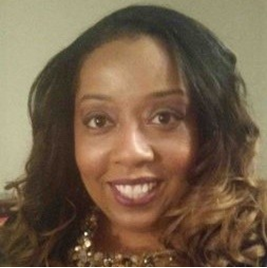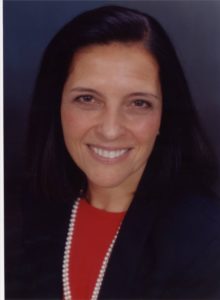What is it about?: IoT Vertical and Topical Week is part of the Program for the IEEE Virtual World Forum on the Internet of Things – WFIoT2020, sponsored by the multi-society IEEE IoT Initiative in collaboration with the IoT Community. It addresses subjects of importance to IoT organized by either market segments or well defined cross-cutting technology areas and ecosystem considerations. The focus of each session is on the end-end cycle of activities from the inception of an idea about an IoT based product, service, process, or manufacturing capability to its deployment and operation. Specifically, the sessions address how these activities can affect the success or failure of a deployment. In keeping with the theme of WF-IoT 2020, “The Internet of Intelligent Things”, we have asked the speakers and presenters to emphasize the role of Computational Analytics (CA) and the gamut of Artificial Intelligence (AI) techniques and methods that are important to the value delivered by IoT solutions in the three Vertical Markets addressed during the week – Smart City, Agriculture, and Manufacturing. The exploitation of CA and AI poses new and emerging issues for supporting disciplines that are cover in the two the Topical Area Sessions on Security and Data. We have also asked the presenters and moderators to share their experiences with the successes and challenges they have encountered.
What can you expect?: The format of each session is a moderated panel and discussion led by an experienced IoT practitioner. The Panel follows on-demand and live talks by experts on the subject designated for each day of the week by speakers from industry, the public sector, and academia. They will be sharing their experiences, observations, and ideas about the opportunities and challenges for successful IoT deployments in their domains. Please join us during the week of September 14th for the two-hour sessions at 11:00am-1:00pm Eastern US Time. You will find an informative and lively program, and we encourage you to participate and be part of the dialog. The program will be conducted on the WebEx platform – as a live event.
VERTICAL AND TOPICAL PROGRAM
Who should attend?: We have structured the program so that it will be informative for a general but knowledgeable audience. If you are a manager, an administrator, in charge of an IoT project, designing IoT solutions, applications, services, or products, a researcher, a student contemplating a career in IoT, an IoT enthusiast, or just curious you will find that the IoT Standards Week sessions will provide you with a panoramic view of the exciting developments in IoT and of the complex IoT ecosystem.
How will the event be conducted?: Each session consist of three presentations, accompanied by Power Point or PDF decks that will be posted on the WF-IoT 2020 website and can be accessed by registrants after the talks are delivered. The live sessions has been programmed to last two (2) hours. We also have plans to accommodate additional presentations through on-demand material that will be posted at the commencement of the IoT Vertical and Topical Week. Each session has provisions for direct interaction with the moderator and speakers using the Q&A feature of the WebEX delivery platform. We encourage registrants to forward questions to the speakers and moderators ahead of the live session. The daily sessions will be conducted live over WebEx and will be recorded. To effectively experience the sessions, we recommend that you have sufficient bandwidth available on your network.
Moderators:
Joel Myers, DOMILA Limited
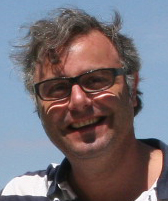 CEO, DOMILA Limited, Dublin, Republic of Ireland
CEO, DOMILA Limited, Dublin, Republic of Ireland
Vice Chair of the IEEE Internet of Things (IoT) Consortium Smart Cities Working Group
Leading technologist specializing in the creation and development of innovation technology solutions in the communications and management of services in Cultural Heritage, Tourism, and since 2015 in Business Networking. His company, HoozAround Corp. is currently commercializing a mobile application called HoozAroundTM. This App offers very close-proximity networking for users to carry out business and social networking based on profile matching needs or interests in real-time, indoors and outdoors. Its aim is to bring people together that would otherwise never meet, face-to-face, in order to create new and more efficient opportunities to grow personally, socially as a city-wide community and in developing business. The app was successfully piloted at the IFA Berlin consumer electronics trade fair in 2017 and at the IEEE World Forum on IoT in February 2018 (Singapore).
Over the past few years Joel Myers has been focusing on the redefinition of the “Internet of People” exploring the goals of the smart city industry movement juxtaposed with the need for humanity to remain connected as physical people.
The work carried out by Joel Myers has been published in international newspapers and journals such as the BBC, New York Times, Hong Times, the Hindu Times, Wired, and Forbes Magazine.
Rebecca Lee Hammons, Ball State University
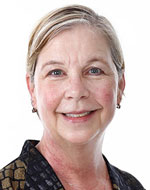 Dr. Rebecca Hammons is an associate professor in the Center for Information and Communication Sciences at Ball State University. She has extensive technology industry experience in establishing and leading software quality assurance, product development lifecycle services, and project management teams. Strengths include technical leadership, process improvement and automation, predictive analytics for software, and strategic planning.
Dr. Rebecca Hammons is an associate professor in the Center for Information and Communication Sciences at Ball State University. She has extensive technology industry experience in establishing and leading software quality assurance, product development lifecycle services, and project management teams. Strengths include technical leadership, process improvement and automation, predictive analytics for software, and strategic planning.
Dr. Hammons has worked for Ontario Systems, Apple, Raytheon, Tivoli Systems and Wang, in addition to several niche software firms. She is a Certified Quality Manager and Certified Software Quality Engineer with the American Society for Quality (ASQ) and a Certified Scrum Master and Certified Scrum Product Owner with Scrum Alliance. Dr. Hammons received her Ed.D. and M.A. from Ball State University and her B.A. from Michigan State University.
Her dissertation research was in self-directed learning for software quality practitioners. Current technology industry research interests include Slow Tech, Burnout Theory, Internet of Things/Smart Cities, and Gold-Collar Workers. Dr. Hammons thrives on leading organizational change initiatives and coaching individuals and teams to reach their full potential.
Sander Dolder, Vice President of Initiatives – Smart and Sustainable Cities at NYCEDC
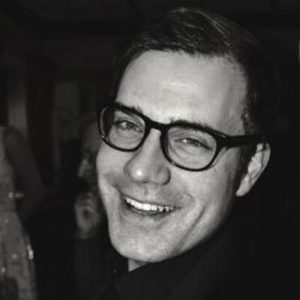 Highly perceptive & even-keeled business development leader with 10 years of effective results transforming organizations and economies towards a low-carbon future by fostering innovation, growth, and systems change. Currently a Vice President at the New York City Economic Development Corporation where I design, build, & lead efforts to expand the NYC economy by catalyzing emerging sectors, developing innovation ecosystems, implementing sustainability strategies, and forging public-private partnerships: specialized in strategic foresight, innovation ecosystems, sustainability, impact investing, and organization design; sector experience in urbantech/smart cities, cleantech, telecom, media, emerging tech, chemical, and public sectors; and skilled in project management, due diligence, urban planning, public policy, and public-private partnerships.
Highly perceptive & even-keeled business development leader with 10 years of effective results transforming organizations and economies towards a low-carbon future by fostering innovation, growth, and systems change. Currently a Vice President at the New York City Economic Development Corporation where I design, build, & lead efforts to expand the NYC economy by catalyzing emerging sectors, developing innovation ecosystems, implementing sustainability strategies, and forging public-private partnerships: specialized in strategic foresight, innovation ecosystems, sustainability, impact investing, and organization design; sector experience in urbantech/smart cities, cleantech, telecom, media, emerging tech, chemical, and public sectors; and skilled in project management, due diligence, urban planning, public policy, and public-private partnerships.
Mohamed Essaaidi, ENSIAS College of Engineering
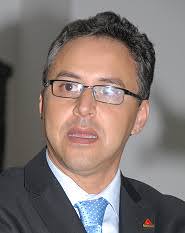 Mohamed Essaaidi, Prof. Dr. IEEE Senior Member, received the “Licence de Physique” degree, the “Doctorat de Troisième Cycle” degree and the “Doctorat d’Etat” degree in Electrical Engineering and with honors, respectively, in 1988, 1992 and 1997 from Abdelmalek Essaadi University in Tetuan, Morocco. He is a professor of Electrical Engineering in Abdelmalek Essaadi University since 1993.
Mohamed Essaaidi, Prof. Dr. IEEE Senior Member, received the “Licence de Physique” degree, the “Doctorat de Troisième Cycle” degree and the “Doctorat d’Etat” degree in Electrical Engineering and with honors, respectively, in 1988, 1992 and 1997 from Abdelmalek Essaadi University in Tetuan, Morocco. He is a professor of Electrical Engineering in Abdelmalek Essaadi University since 1993.
He is the founder and former Chair of the IEEE Morocco Section since November 2004. He is the founder and the General Chair of Mediterranean Microwave Symposium (MMS) since the year 2000, the co-founder and the General Chair of Information and Communication technologies International Symposium (ICTIS) since 2005, and NATO Advanced Research Workshop on Information Security Assurance Co-director, Tetuan, June 3-6, 2005. He is the Chairman of the Scientific Committees of SETIT’07, SETIT’09 (Tunisia) and e-MEDISYS’07 (Morocco) and e-MEDISYS’09 (Tunisia) as well. He was also a member of the Organizing and the Scientific Committees of several international symposia and conferences dealing with topics related with RF, microwaves and Information and Communication technologies and their applications. Furthermore, he is a referee of the IEEE Transactions on Microwave Theory and Techniques, IEEE Transactions on Antennas and Propagation, Advanced Computational Electromagnetics Society Journal, European Microwave Association Proceedings, Serbian Journal of Electrical Engineering and Korean Electronics and Telecommunications Research Institute Journal.
Professor Essaaidi is a member of IEEE Microwave Theory and Techniques Society, IEEE Antennas and Propagation Society, IEEE Communications Society and European Microwave Association. His biography was listed in Who’s Who in The World in 1999. He is also the co-founder and the current coordinator of the Arab Science and Technology Foundation (ASTF) RD&I network on Electrotechology. His research interests focus mainly on RF and microwave passive and active circuits and antennas for wireless communications and medical systems.
He was the editor of the MS2000 Proceedings, the co-editor of the MMS’2002, ICTIS’05 and ICTIS’07 Proceedings and MMS’2006 special issue of the European Microwave Association Proceedings. He is the author and co-author of more than 80 papers which appeared in refereed specialized journals and symposia. He was the co-editor of the book “Information Assurance and Computer Security”, IOS Press, 2007. He was also the co-editor of the book “New Trends in Biomedical Engineering”, AEU Publications, 2004 and the author of 3 book chapters. He was a Guest-Editor of special issues of European Microwave Journal (2007), International Journal Of Computer Science Applications (2007,2008) and International Journal on Computer Science and Information Systems (2008). He is the Editor-in-Chief of the International Journal on Information and Communication Technologies (Serials Publications, India) since November 2007.
Victor Larios, The University of Guadalajara
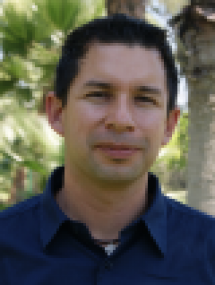 Victor M. Larios followed higher education degree programs a the ITESO University in Mexico (BSc in Electronics Engineering) and the Université de Technologie de Compiègne in France (MSc and Ph.D.). He is a Full Professor at the Information Systems Department at the University of Guadalajara (UDG). Since April 2014, he is the Director of the Smart Cities Innovation Center (SCIC) and leads a group of researchers in Smart Cities and Information Technologies at UDG. His primary research interests are in Smart Cities, IoT Distributed Systems, Networking, Multiagent Systems, and Data Visualization using Virtual Reality. As contributions, Dr. Larios published more than 70 papers in international refereed journals and conferences and published a book in Serious Games.
Victor M. Larios followed higher education degree programs a the ITESO University in Mexico (BSc in Electronics Engineering) and the Université de Technologie de Compiègne in France (MSc and Ph.D.). He is a Full Professor at the Information Systems Department at the University of Guadalajara (UDG). Since April 2014, he is the Director of the Smart Cities Innovation Center (SCIC) and leads a group of researchers in Smart Cities and Information Technologies at UDG. His primary research interests are in Smart Cities, IoT Distributed Systems, Networking, Multiagent Systems, and Data Visualization using Virtual Reality. As contributions, Dr. Larios published more than 70 papers in international refereed journals and conferences and published a book in Serious Games.
Dr. Larios is cooperating in projects with the High Technology industry and government using design thinking and agile methodologies to accelerate technology transfer in living labs. As an entrepreneur, he is the founder and CIO of a consulting company IDI Smart Cities, working in cooperation with Advion Solutions from Finland. The main activities are the market research and the development of coordinated international projects in Latin American Countries and the European Union. More specifically, efforts are in place to introduce the Circular Economy Model as a sustainability component for the Mega-Cities. As a volunteer, Dr. Larios also is a technical advisor for the Guadalajara Smart City project for the Government and international ONGs as IEEE. Victor M. Larios is a Senior Member at IEEE with 27 years of membership and the local leader of Guadalajara Core City at the IEEE Smart Cities Initiative since 2013.
Kishor Narang, Technology Philanthropist, Innovation & Standardization Evangelist
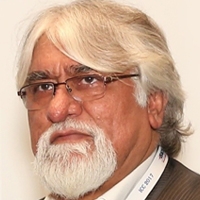 Kishor is currently leading the Smart Cities Standardization Globally as Vice Chair – Strategy & Convener of Reference Architecture Work Group in IEC Systems Committee on Smart Cities and Project Leader of IEC Standards – IEC TS 63188 ED1 – Smart Cities Reference Architecture Methodology & IEC 63205 ED1 – Smart Cities Reference Architecture; and also, as Co-editor of a few ISO Standards in ISO/IEC JTC1 Committees. Member Steering Committee – OCEANIS (The Open Community for Ethics in Autonomous and Intelligent Systems); Member UL STP 3600 on ‘Measuring and Reporting Circular Economy Aspects of Products, Sites and Organizations’. And Standards Column Editor in IEEE IoT magazine.
Kishor is currently leading the Smart Cities Standardization Globally as Vice Chair – Strategy & Convener of Reference Architecture Work Group in IEC Systems Committee on Smart Cities and Project Leader of IEC Standards – IEC TS 63188 ED1 – Smart Cities Reference Architecture Methodology & IEC 63205 ED1 – Smart Cities Reference Architecture; and also, as Co-editor of a few ISO Standards in ISO/IEC JTC1 Committees. Member Steering Committee – OCEANIS (The Open Community for Ethics in Autonomous and Intelligent Systems); Member UL STP 3600 on ‘Measuring and Reporting Circular Economy Aspects of Products, Sites and Organizations’. And Standards Column Editor in IEEE IoT magazine.
At the National level, he is leading the Smart Cities Standardization work in ICT & Electrotechnology domains as the Chairman of LITD 28 – Sectional Committee on Smart Infrastructure at BIS (Bureau of Indian Standards), where the main focus is on Standards development for Unified & Secure ICT Architecture for Smart Cities/ Infrastructure.
Professionally, Kishor is Technology Consultant, Mentor & Design Architect in Electrical, Electronics & ICT with over 40 years of professional experience in education, research, design and consulting. Over 30 years of hardcore Research and Design Development Experience in Solutions, Systems, Products, Hardware, Software & Firmware (Embedded Software) in fields of Industrial, Power, IT, Telecom, Medical, Energy and Environment, and over 10 years of Consultancy Experience to different segments of business & industry. He has over 200 Research & Design Mentees in the Electronics, ICT & STI Ecosystems. Professionally, he is an Electronics Design Engineer practicing design & development of a wide spectrum of Products, Systems & Solutions as an Independent Design House – NARNIX since 1981.
Beyond designing & developing some of the most innovative systems & solutions, kishor has developed some complex IPs in Design Architectures in the Fields of High Frequency Power Electronics, Neutral Access Network Operation, Last Mile Communication, Smart Utility Management & Smart Infrastructure.
For last 10 years, deeply involved in Standardization in the Electrical, Electronics, Communication and Information Technology Domains with focus on Identifying Gaps in Standards to address Interoperable Systems & Solutions Deployments and bring Harmonization by defining standardized interfaces to ensure End-to-End Interoperability.
Currently, Kishor is developing a Comprehensive “5G inclusive ICT Architecture for Critical Infrastructure” and leading the 5G Application Layer Standards development in India.
S2: Agriculture
“Roundtable Panel on IoT for Agriculture”
Roundtable Description: Agricultural technologies are used across the entire agri-food supply chain – from the planting of seeds to the harvesting of crops, breeding livestock and treating disease, transporting goods and managing commercial sales, where agricultural innovations have a role to play at every stage. Agricultural science and technology is rapidly becoming one of the world’s fastest growing and exciting markets. It is driven by global changes: a rising population, rapid development of emerging economies with western lifestyle aspirations and growing geopolitical instability around shortages of land, water and energy. A technology revolution is also taking place. Breakthroughs in nutrition, genetics, informatics, satellite imaging, remote sensing, meteorology, precision farming and low impact agriculture mean agricultural technologies have huge potential for development. Also, the scale of farming worldwide has changed significantly in recent years, with a move towards larger, intensive, profit-driven enterprises due to market pressures. This has resulted in demand for cost and labor reducing advanced farm automation technologies which can increase farm productivity. This step change has resulted in a demand for technologies and equipment which can reduce costs and labor inputs with concurrent increases in capacity to provide economies of scale. These economies of scale however will not yield profit unless quality is maintained, and this is a central focus of any new technologies developed for the sector. The WF will explore how Internet of Things technologies contribute to address all of these challenges through improvements in yield and efficiency with discussions from renowned experts in academia, industry, and the public sector.
Mehmet Can Vuran, University of Nebraska, USA
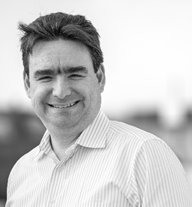 Mehmet Can (Jon) Vuran received his B.Sc. degree in Electrical and Electronics Engineering from Bilkent University, Ankara, Turkey in 2002. He received his M.S. and Ph.D. degrees in Electrical and Computer Engineering from Georgia Institute of Technology in 2004 and 2007, respectively.
Mehmet Can (Jon) Vuran received his B.Sc. degree in Electrical and Electronics Engineering from Bilkent University, Ankara, Turkey in 2002. He received his M.S. and Ph.D. degrees in Electrical and Computer Engineering from Georgia Institute of Technology in 2004 and 2007, respectively.
Currently, he is the Susan J. Rosowski Professor of Computer Science and Engineering at the University of Nebraska-Lincoln. Dr. Vuran received an NSF CAREER award in 2010 for “Bringing Wireless Sensor Networks Underground”. In 2014, 2015, and 2016, he was named a highly-cited researcher in computer science by Thomson Reuters. He received a Parents Recognition Award from UNL Parent’s Association in 2016. He is the co-author of Wireless Sensor Networks textbook, TPC Co-Chair of IEEE INFOCOM 2020, and an editor in Computer Networks Journal, IEEE Transactions on Mobile Computing, and IEEE Communications Surveys and Tutorials Journal. His current research interests include Internet of Things, underground communications, cognitive radio networks, and cyber-physical networks.
Tom Penning, Irrometer Co., Inc., USA
 Tom Penning is the CEO of Irrometer Co., Inc., a USA based manufacturer and global supplier of soil moisture measurement equipment, primarily used in irrigated agriculture. During 30 years of experience in the irrigation industry, he has worked in both the manufacturing and supply chain segments of the business. Irrometer has developed and deployed numerous automated telemetry systems to gather field soil moisture data for farmers. Irrometer’s sensors are also used by many original equipment manufacturers in their data collection and control systems. Since its inception, Tom has been on the ASABE (American Society of Agricultural and Biological Engineering) and AgGateway committees for agricultural data standards development, an effort to streamline integration and adoption of IoT technology in agriculture.
Tom Penning is the CEO of Irrometer Co., Inc., a USA based manufacturer and global supplier of soil moisture measurement equipment, primarily used in irrigated agriculture. During 30 years of experience in the irrigation industry, he has worked in both the manufacturing and supply chain segments of the business. Irrometer has developed and deployed numerous automated telemetry systems to gather field soil moisture data for farmers. Irrometer’s sensors are also used by many original equipment manufacturers in their data collection and control systems. Since its inception, Tom has been on the ASABE (American Society of Agricultural and Biological Engineering) and AgGateway committees for agricultural data standards development, an effort to streamline integration and adoption of IoT technology in agriculture.
Panelists:
Chandra Krintz, UC Santa Barbara
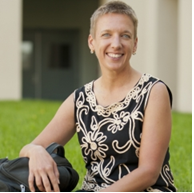 Chandra Krintz is a Professor of Computer Science at the University of California, Santa Barbara (UCSB) and co-founder and Chief Scientist of AppScale Systems, Inc. She joined the UCSB faculty in 2001 after receiving her M.S. and Ph.D. degrees in Computer Science from the University of California, San Diego (UCSD). Chandra has led a number of different research projects that have advanced the state-of-the-art in programming and distributed systems in ways that improve performance and energy consumption, and that ease development and deployment of software. Recently, her work has focused on the intersection of IoT, cloud computing, and data analytics with applications in farming, ranching, and ecology (cf SmartFarm and WTB). Chandra has advised over 60 undergraduate and graduate students, has published numerous research articles regarding the implementation of programming languages in venues that include ASPLOS, IEEE IoTDI, HotCloud, IEEE Cloud, PLDI, TPDS, IEEE IC2E, and others, participates in efforts to broaden participation in computing, and is the progenitor of the AppScale project. Chandra’s efforts have been recognized with a NSF CAREER award, the CRA-W Anita Borg Early Career Award (BECA), the UCSB Academic Senate Distinguished Teaching Award, and as the 2015 UCSB Sustainability Champion.
Chandra Krintz is a Professor of Computer Science at the University of California, Santa Barbara (UCSB) and co-founder and Chief Scientist of AppScale Systems, Inc. She joined the UCSB faculty in 2001 after receiving her M.S. and Ph.D. degrees in Computer Science from the University of California, San Diego (UCSD). Chandra has led a number of different research projects that have advanced the state-of-the-art in programming and distributed systems in ways that improve performance and energy consumption, and that ease development and deployment of software. Recently, her work has focused on the intersection of IoT, cloud computing, and data analytics with applications in farming, ranching, and ecology (cf SmartFarm and WTB). Chandra has advised over 60 undergraduate and graduate students, has published numerous research articles regarding the implementation of programming languages in venues that include ASPLOS, IEEE IoTDI, HotCloud, IEEE Cloud, PLDI, TPDS, IEEE IC2E, and others, participates in efforts to broaden participation in computing, and is the progenitor of the AppScale project. Chandra’s efforts have been recognized with a NSF CAREER award, the CRA-W Anita Borg Early Career Award (BECA), the UCSB Academic Senate Distinguished Teaching Award, and as the 2015 UCSB Sustainability Champion.
Talk Title: “SmartFarm: IoT Systems That Simplify and Automate Agriculture Analytics”
Abstract: The agriculture industry faces tremendous pressure to increase crop production and yields to meet future consumer demand for food. This problem is compounded by the population growth of the planet, severely limited natural resources (arable land and water), unpredictable weather patterns, the requirement of sustainability, and climate change, among other variables. In an effort to intensify production, growers are increasingly turning to environmental measurement and data analysis. Computing systems can automate this process to facilitate faster problem diagnosis, more accurate outcome prediction, and proactive decision making.
In this talk, we present SmartFarm — a new, unifying, and open approach to agriculture analytics and precision farming that leverages and integrates IoT and cloud technologies to provide farmers with new sensing, decision support, and data-driven actuation and control technologies. SmartFarm is an integrated, distributed (cloud/edge/sensor) system that facilitates investigation, validation, and demonstration of new approaches for sensing, data analytics and machine learning, and actuation of farm operations, while ensuring that farm data and analyses remain under the control of growers.
O’Dealya Price, Microsoft
Ms. O’Dealya Price is with the Azure IoT Business Acceleration Group at Microsoft. She was previously with Itron IoT as a Product Manager, and has more than 10 years of IoT experience across the utility, mining and public safety verticals. She received her B.S. in Electrical Engineering from the University of Nevada-Las Vegas and is currently pursuing her Master’s degree in Energy & Sustainability Policy from the University of Denver. Residing in Raleigh-Durham, NC she is an active member of IEEE, Society of Women Engineers, and the National Society of Black Engineers.
Dennis Buckmaster, Purdue University
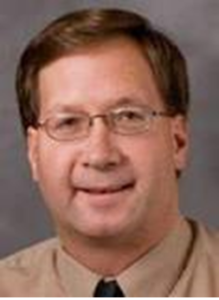 Dr. Dennis R. Buckmaster is a Professor in Agricultural and Biological Engineering at Purdue University. He earned a B.S. in Agricultural Engineering from Purdue University and M.S. and Ph.D. degrees in Agricultural Engineering from Michigan State University. He joined the Purdue ABE faculty in 2006.
Dr. Dennis R. Buckmaster is a Professor in Agricultural and Biological Engineering at Purdue University. He earned a B.S. in Agricultural Engineering from Purdue University and M.S. and Ph.D. degrees in Agricultural Engineering from Michigan State University. He joined the Purdue ABE faculty in 2006.
For 17 years prior to coming to Purdue as an Associate Professor, Dr. Buckmaster was a faculty member at Penn State University. He had focused on technologies affecting storage, transport, and utilization of forages and biomass. His current focus is in digital agriculture with work in the data pipeline from phenomena sensing, including communication and computation, and decision support. Open source efforts through the Open Ag Technology and Systems Center integrate with his research, education and outreach efforts.Dr. Buckmaster co-coordinates the Agricultural Systems Management program and advises many students. At Purdue, he teaches ASM 10500 – Computing Technology with Applications, AGR 10800 – Ag Tech and Innovation, and ASM 42100 – Senior Seminar. He has taught several different courses over the years regarding agricultural machinery and off-road equipment design. Dr. Buckmaster is a member of the American Society of Agricultural and Biological Engineers, the American Forage and Grassland Council, and the Fluid Power Society; he is a registered professional engineer and certified hydraulic specialist.
Talk Title: “IoT-driven Smart Agriculture – current tools and prospects for the future”
Abstract: The presentation will briefly present the data to decision path in agriculture then follow with a sampling of commercial platforms that exist today to give participants an accurate picture of the 2020 state of the art. Then some vision for artificial intelligence and extensive optimization will be presented to reveal opportunities in different temporal, economic, and spatial scales.
James V. Krogmeier, Purdue University
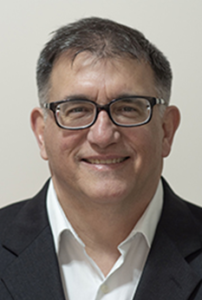 Dr. James V. Krogmeier is a Professor in the school of Electrical and Computer Engineering at Purdue University. Dr. Krogmeier earned his B.S. in Electrical Engineering at the University of Colorado, Boulder. He then attended the University of Illinois where he earned his master’s and Ph.D. in Electrical Engineering. His current research interest revolve around signal processing for wireless communications, adaptive filtering and equalization, synchronization, modulation and coding for nonlinear channels, and intelligent transportation systems.
Dr. James V. Krogmeier is a Professor in the school of Electrical and Computer Engineering at Purdue University. Dr. Krogmeier earned his B.S. in Electrical Engineering at the University of Colorado, Boulder. He then attended the University of Illinois where he earned his master’s and Ph.D. in Electrical Engineering. His current research interest revolve around signal processing for wireless communications, adaptive filtering and equalization, synchronization, modulation and coding for nonlinear channels, and intelligent transportation systems.
Talk Title: “IoT-driven Smart Agriculture – open source solutions”
Abstract: IoT in agriculture is growing rapidly, but the most common, highly-instrumented devices already include the vehicles that cover the land to do key operations such as tillage, spraying, planting, and harvest. This presentation will cover an improved method of capturing this data and contextual metadata that can improve artificial intelligence systems. We will outline our open-source machine telematics device called Isoblue, it’s development roadmap, and some of the data analytics and potential applications it helps to enable.
S3: Security, Privacy, and Trust
Moderator: Florence DiStefano Hudson, FDHint LLC, USA
Florence D. Hudson consults with industry, government, research and academic clients in advanced technology innovations, diversity and inclusion. She is Executive Director of the Northeast Big Data Innovation Hub at Columbia University, a community convener, collaboration hub, and catalyst for data science innovation in the Northeast Region. As leader of one of the four US Big Data Innovation Hubs, she collaborates with data science leaders across the country, and with the European Union to enable EU-US collaboration on Next Generation Internet. She is also special advisor for Trusted CI, the NSF Cybersecurity Center of Excellence at Indiana University, leading their Cybersecurity Research Transition to Practice (TTP) program.
Florence is a member of the IEEE Engineering in Medicine and Biology Society Technical Committee on Standards, and Chairs a collaborative IEEE and Underwriters Laboratories (UL) standards working group – IEEE/UL P2933 – Clinical Internet of Things Data and Device Interoperability with TIPPSS – Trust, Identity, Privacy, Protection, Safety, Security. In this role she leads a working group of over 200 people from 22 countries and 6 continents including industry, academia, healthcare leaders, government, regulators, and technologists to develop standards for improved safety and security for connected healthcare devices and data. She is an editorial board member for the journal Blockchain in Healthcare Today, and on the program committee for the annual SuperComputing Computational Approaches for Cancer workshops in collaboration with the U.S. National Cancer Institute.
Trained as an Aerospace and Mechanical Engineer, Florence began her career at Grumman Aerospace Corporation and NASA, followed by a career in Information and Communications Technology including IBM Vice President and Chief Technology Officer, and Internet2 Senior Vice President & Chief Innovation Officer. In 2018 she became Founder and CEO of FDHint, LLC.
Florence is passionate about enabling and inspiring future generations of technical and business leaders through her roles on multiple boards and advisory councils including the Princeton University Civil and Environmental Engineering Advisory Council, Cal Poly San Luis Obispo Industrial and Manufacturing Engineering Industrial Advisory Board, Stony Brook University Mechanical Engineering Industrial Advisory Board, University of South Florida CyberFlorida review board, and the Union County College Cyber Service Advisory Board.
Florence received her BSE in Mechanical and Aerospace Engineering from Princeton University, and has attended executive education at Columbia University and Harvard Business School.
Fen Zhao, Head of Data Science Research
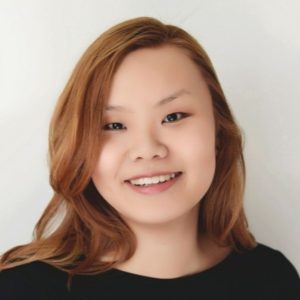 Fen Zhao is the Head of Data Science Research at Los Angeles-based venture capital firm Alpha Edison. Prior to joining Alpha Edison, she developed public–private partnerships at the National Science Foundation. She created and led the Big Data Hubs and Spokes Program and was the program coordinator for the Secure and Trustworthy Cyberspace (SaTC) program. During the Obama Administration, Dr. Zhao was an AAAS Fellow at the White House Office of Science and Technology Policy (OSTP). Formerly, Dr. Zhao was an associate with McKinsey’s Risk Management Practice. Fen received her PhD in Computational Astrophysics from Stanford University and her BS in Physics from MIT.
Fen Zhao is the Head of Data Science Research at Los Angeles-based venture capital firm Alpha Edison. Prior to joining Alpha Edison, she developed public–private partnerships at the National Science Foundation. She created and led the Big Data Hubs and Spokes Program and was the program coordinator for the Secure and Trustworthy Cyberspace (SaTC) program. During the Obama Administration, Dr. Zhao was an AAAS Fellow at the White House Office of Science and Technology Policy (OSTP). Formerly, Dr. Zhao was an associate with McKinsey’s Risk Management Practice. Fen received her PhD in Computational Astrophysics from Stanford University and her BS in Physics from MIT.
Britt Daneman, Early Stage Investor, AlphaEdison, USA
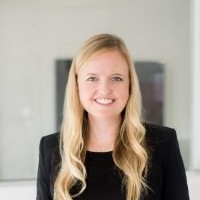 Britt Danneman is an investor at the Los Angeles-based venture capital firm Alpha Edison. She primarily invests at the Seed to Series B stages to help set business models, fundamental strategy, team and capital plan. She invests thematically, with one such focus on trust. Prior to joining Alpha Edison, Britt worked in distressed and middle market investing at Bain Capital Credit in Boston. She also worked in corporate development and strategy in San Francisco at the fintech startup Funding Circle. She received her MBA from Harvard Business School and undergraduate degree in Finance and Management from The Wharton School at the University of Pennsylvania.
Britt Danneman is an investor at the Los Angeles-based venture capital firm Alpha Edison. She primarily invests at the Seed to Series B stages to help set business models, fundamental strategy, team and capital plan. She invests thematically, with one such focus on trust. Prior to joining Alpha Edison, Britt worked in distressed and middle market investing at Bain Capital Credit in Boston. She also worked in corporate development and strategy in San Francisco at the fintech startup Funding Circle. She received her MBA from Harvard Business School and undergraduate degree in Finance and Management from The Wharton School at the University of Pennsylvania.
Talk Title: “A Business Framework for Evaluating Trust in IoT Technology”
Abstract: Trust is not a factor investors commonly take into account when estimating the value of an idea or company. That is in part because it is so difficult to measure. In this section, we lay out a qualitative understanding of what builds trust in a brand or company and a framework for arriving at a quantitative measurement of what that trust is worth.
Joanna Lyn Grama, Associate Vice President, Vantage Technology Consulting Group
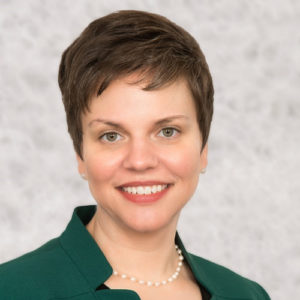 Joanna Lyn Grama is Associate Vice President with Vantage Technology Consulting Group, where she advises clients on information security policy, compliance, governance, and data privacy issues. She is a member of the US Department of Homeland Security’s Data Privacy and Integrity Advisory Committee, appointed by former Secretary of Homeland Security Janet Napolitano, and serves as the chairperson of its technology subcommittee. Joanna received her JD from the University of Illinois College of Law with honors and her BA in International Relations from the University of Minnesota.
Joanna Lyn Grama is Associate Vice President with Vantage Technology Consulting Group, where she advises clients on information security policy, compliance, governance, and data privacy issues. She is a member of the US Department of Homeland Security’s Data Privacy and Integrity Advisory Committee, appointed by former Secretary of Homeland Security Janet Napolitano, and serves as the chairperson of its technology subcommittee. Joanna received her JD from the University of Illinois College of Law with honors and her BA in International Relations from the University of Minnesota.
Kim Milford, Executive Director, Research & Education Networking Information Sharing & Analysis Center (REN-ISAC), USA
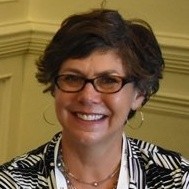 Kim Milford is the Executive Director of the Research & Education Networking Information Sharing & Analysis Center (REN-ISAC) at Indiana University, providing services and sharing information to facilitate research and educational institutions to better defend against threats. Since joining Indiana University in 2007, Milford served several roles leading strategic IT initiatives. As Chief Privacy Officer, she coordinated privacy-related efforts while serving on IU’s Assurance Council, chairing the Committee of Data Stewards, and directing the work of the University Information Policy Office. Milford previously worked as Information Security Officer at the University of Rochester leading an information security program that included disaster recovery planning, identity management, incident response and user awareness. In her position as Information Security Manager at University of Wisconsin—Madison from 1998 to 2005, she assisted in establishing the university’s information security department and co-led in the development of an annual security conference. Milford provides cybersecurity, information policy, and privacy expertise and presentations at national and regional conferences, seminars and consortia. She has a BS in Accounting from Saint Louis University in St. Louis, Missouri and a JD from John Marshall Law School in Chicago, Illinois.
Kim Milford is the Executive Director of the Research & Education Networking Information Sharing & Analysis Center (REN-ISAC) at Indiana University, providing services and sharing information to facilitate research and educational institutions to better defend against threats. Since joining Indiana University in 2007, Milford served several roles leading strategic IT initiatives. As Chief Privacy Officer, she coordinated privacy-related efforts while serving on IU’s Assurance Council, chairing the Committee of Data Stewards, and directing the work of the University Information Policy Office. Milford previously worked as Information Security Officer at the University of Rochester leading an information security program that included disaster recovery planning, identity management, incident response and user awareness. In her position as Information Security Manager at University of Wisconsin—Madison from 1998 to 2005, she assisted in establishing the university’s information security department and co-led in the development of an annual security conference. Milford provides cybersecurity, information policy, and privacy expertise and presentations at national and regional conferences, seminars and consortia. She has a BS in Accounting from Saint Louis University in St. Louis, Missouri and a JD from John Marshall Law School in Chicago, Illinois.
Talk Title: “The Remote Shift in IoT/Bring Your Own Device in Higher Ed”
Abstract: The higher education culture, which is focused on learning and innovation, with a profound emphasis on openness and transparency, has allowed the proliferation of Internet-capable devices to flourish and thrive on today’s campuses. Almost every student (98%) and faculty member (96%) have a smartphone and/or tablet (98%), so managing this level of mobility is of key import to higher education. As is the case with IoT, managing mobility does not just refer to devices themselves. It also means managing the mobility of people and their data, and the institution and its data. Now with the dramatic shift to remote teaching and learning, including an on campus / in classroom / virtual on-line hybrid environment due to the COVID-19 pandemic, there are many more implications. Higher education’s early experience with Bring Your Own Device (BYOD) provides it with the building blocks needed to more fully address the promise and peril of the Internet of Things (IoT) in the campus and remote learning environment. We will discuss the security, privacy, connectivity and infrastructure issues that the proliferation of mobile and connected devices bring to the learning environment and how higher education institutions are responding to the complexities—opportunities and challenges—presented via the rise of the Internet of Things.
Licia Florio, Senior Trust and Identity Manager, GÉANT, Amsterdam, The Netherlands, EU
 Licia Florio works for the GÉANT Association as a Senior Trust and Identity Manager. Over the last 15 years, Licia has been involved in many key initiatives that make up the current European and global Authentication and Authorisation Infrastructure for Research & Education (R&E). She supported the Task Force that produced the first eduroam (federated access to wireless networks) pilot—a service that now counts tens of thousands of hotspots in 89 countries across the world; she led the working group that created REFEDS, the global forum that gather R&E identity federations that now counts 90 R&E Identity federations worldwide; she managed the European Funded project on Authentication and Authorisation for Research Collaboration (AARC) to enable federated access for large-scale research collaborations. Currently, she co-leads the Trust and Identity activities in the context of the GEANT project. In June 2018, Licia was awarded the prestigious Medal of Honour by the Vietsch Foundation that supports research and development of advanced Internet technology for scientific research and higher education.
Licia Florio works for the GÉANT Association as a Senior Trust and Identity Manager. Over the last 15 years, Licia has been involved in many key initiatives that make up the current European and global Authentication and Authorisation Infrastructure for Research & Education (R&E). She supported the Task Force that produced the first eduroam (federated access to wireless networks) pilot—a service that now counts tens of thousands of hotspots in 89 countries across the world; she led the working group that created REFEDS, the global forum that gather R&E identity federations that now counts 90 R&E Identity federations worldwide; she managed the European Funded project on Authentication and Authorisation for Research Collaboration (AARC) to enable federated access for large-scale research collaborations. Currently, she co-leads the Trust and Identity activities in the context of the GEANT project. In June 2018, Licia was awarded the prestigious Medal of Honour by the Vietsch Foundation that supports research and development of advanced Internet technology for scientific research and higher education.
Talk Title: “The Dark Side of Things”
Abstract: Over the last years the Internet of Things (IoT) has become a reality, moving from a futuristic topic to something pretty much everybody has some experience with. We are all using apps that tell us how to remain fit, and enable us to remotely control our heating, monitor health conditions and even in some cases save people’s lives. These are of course only a small fraction of the endless applications of IoT. Gartner predicts that by 2020 more than 20 billion connected “Things” will be in use and some predictions are even higher. That is a lot of “Things” that will know something about us! Whilst IoT opens the doors to new opportunities (and who would not like a fridge that checks what is missing and send a reminder on what to buy?), it also creates new challenges on the security and privacy side. New Things are launched daily on the market, but how much do companies invest in securing users’ access, privacy, and users’ data collected by Things and often residing on the providers’ cloud? Things collect an enormous amount of data that in the wrong hands may lead to dangerous data leaks. We will discuss Federated Identity Management (FIM) and its key aspects, exploring the challenges to expand the traditional federated identity management to IoT, and how to authenticate devices and secure the way the data they collect are transmitted in a secure way.
Soody Tronson, Founder & CEO Presque, Founding Managing Counsel STLG, USA
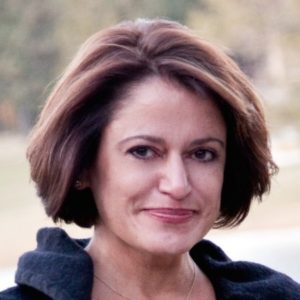 Soody Tronson has over 25 years of operational experience in technology, business, management, and law in start-up and fortune 100 companies. She is founding managing counsel at the law firm of STLGip, and founder and CEO of Presque, a wearable consumer medical device company. She serves in board and advisory capacities with STEM to Market national accelerator, California Lawyers Association Executive Committee of the Intellectual Property Section, and Licensing Executives Society USA/Canada Women in Licensing Committee. Soody holds a JD, MS in industrial chemistry, and BS in chemistry, and is licensed to practice before the State of California and the US Patent and Trademark Office. In her role as a licensing executive, she is leading efforts to provide best practices and recommendations on streamlining data sharing arrangements.
Soody Tronson has over 25 years of operational experience in technology, business, management, and law in start-up and fortune 100 companies. She is founding managing counsel at the law firm of STLGip, and founder and CEO of Presque, a wearable consumer medical device company. She serves in board and advisory capacities with STEM to Market national accelerator, California Lawyers Association Executive Committee of the Intellectual Property Section, and Licensing Executives Society USA/Canada Women in Licensing Committee. Soody holds a JD, MS in industrial chemistry, and BS in chemistry, and is licensed to practice before the State of California and the US Patent and Trademark Office. In her role as a licensing executive, she is leading efforts to provide best practices and recommendations on streamlining data sharing arrangements.
Talk Title: “Public Safety and Protection by Design: Opportunities & Challenges for IoT and Data Science”
Abstract: The rapid growth and integration of technology in our lives present new challenges and opportunities for our communities. In particular, the Internet of Things (IoT), with a connected network of sensors and computing power, links disparate elements for new functionality and coordination. From connected vehicles that could streamline transportation in smart cities, to early warning systems for earthquakes or global health hazards, IoT and data-enabled technologies have the potential to impact public safety at an unprecedented scale. Yet, our legal structures, operating frameworks, and social norms concerning the design and deployment of IoT—and the collection, use, and sharing of data—often lack the transparency and cohesiveness needed for effective coordination. Especially for matters of public safety and social good, we need to collectively understand and proactively shape an ecosystem that leverages the democratization of technology and values collaboration among diverse stakeholders. Although research is underway in privacy-preserving analytics, the complex social context in which such approaches would be deployed requires a new level of multi-stakeholder collaboration. Analytics and decision making processes often need to be collaborative, providing transparency and accountability, while assessing the issues of inherent bias and the potentially competing goals among entities. In IoT and data science, information and power are often distributed by design to more than one entity. In a similar vein, whether through technology pilot programs or public-private partnerships, governments and other organizations securing the safety of the public are increasingly interfacing across disciplines to be responsive to operational needs. By drawing insight from computer science, law, government operations, and other areas, we have an opportunity to highlight a shared responsibility, and to shape the responsible and ethical implementation of public safety solutions and approaches.
Grace Wilson Marshall, CyberSecurity Consultant, FSS Technologies (FSST)
 Grace Wilson Marshall is a CyberSecurity Consultant at FSS Technologies (FSST), a United States Agency for International Development (USAID) scholar and an NSF EPSCoR fellow. While attending Kentucky State University, a HBCU in Kentucky, she earned an Associate of Science degree in Electronics Technology, two Bachelors of Science degrees in Computer Science and Network Engineering, and a Master of Science degree in Information Security and Assurance. Grace has embarked on earning her PhD in Information Security. Grace currently functions as a cybersecurity consultant with businesses and individuals for FSS Technologies (FSST). Grace recently held positions as CyberInfrastructure Engineer at the University of New Hampshire, and Principal IT auditor with the University of Kentucky. She presented at the national level in academia at various conferences in the USA: conducting Birds of a Feather sessions (BoFs), leading presentations, participating in workshops and hosting discussions around high-performance computing and cybersecurity. Alongside her career and scholarly endeavors, she enjoys hiking, playing volleyball and recreational golf, and volunteers as a YMCA certified Level II swim official for Kentucky and Ohio.
Grace Wilson Marshall is a CyberSecurity Consultant at FSS Technologies (FSST), a United States Agency for International Development (USAID) scholar and an NSF EPSCoR fellow. While attending Kentucky State University, a HBCU in Kentucky, she earned an Associate of Science degree in Electronics Technology, two Bachelors of Science degrees in Computer Science and Network Engineering, and a Master of Science degree in Information Security and Assurance. Grace has embarked on earning her PhD in Information Security. Grace currently functions as a cybersecurity consultant with businesses and individuals for FSS Technologies (FSST). Grace recently held positions as CyberInfrastructure Engineer at the University of New Hampshire, and Principal IT auditor with the University of Kentucky. She presented at the national level in academia at various conferences in the USA: conducting Birds of a Feather sessions (BoFs), leading presentations, participating in workshops and hosting discussions around high-performance computing and cybersecurity. Alongside her career and scholarly endeavors, she enjoys hiking, playing volleyball and recreational golf, and volunteers as a YMCA certified Level II swim official for Kentucky and Ohio.
Talk Title: “Privacy Management in the Internet of Things”
Abstract: Data Security and Privacy concerns are the two big concerns in the Internet of Things. The Internet of Things (IoT) can be likened to a “child node” of a “parent node,” in that IoT is an extension of the Internet. IoT is an integration of mobile networks, the Internet, social networks, and intelligent devices to provide better services or applications to users. The IoT connect the digital cyberspace and real physical space, in which radio-connected intelligent sensors have invaded the physical space, and these are now embedded in everything from our toys, to our office equipment, to our healthcare medical devices. It is quite evident that the IoT can introduce all the vulnerabilities of the digital world into our real world. Privacy risks will arise as objects within the IoT collect and aggregate fragments of data that relate to their service(s). The collation of multiple points of data can swiftly become personal information as events are reviewed in the context of location, time, recurrence, etc. This is one aspect of the big data challenge, and security professionals will need to ensure that they think through the potential privacy risks associated with the entire dataset of big data.
S4: AI and data analytics: Driving Smart IoT
Moderator: Chung-Min Chen, Lutron Electronics

Chung-Min has over 20 years of applied research, software development, and consulting experience in telecom, defense, and digital marketing industries. Previously, he was VP of Data Science with a startup, Sr. Director with iconectiv/Ericsson, and Chief Scientist with Bellcore/Telcordia during which he executed high-profile data analytics and machine learning projects.
Chung-Min’s interest and passion span across large-scale data systems, machine learning, and mobile computing. He has published over 50 research papers in leading ACM and IEEE journals and conferences. He received a PhD in CS from University of Maryland, College Park and BS in CSIE from National Taiwan University.
David Belanger, Senior Fellow, Stevens Institute of Technology
 Dr. David Belanger is currently a Senior Research Fellow at Stevens Institute of Technology. Previously, he was Chief Scientist of AT&T Labs, Vice President of Information, Software & Systems Research at AT&T Labs, and creator of the AT&T InfoLab, an early participant in “Big Data” research and practice. He built the Software Engineering Research Department which provided software tools and techniques used across AT&T Bell Labs, and via open source, across the world. He also teaches and helps lead in the Business Intelligence & Analysis Master’s Degree program and the Center for Big Data Innovation. In addition, he is involved in consulting related to Big Data in areas such as Health Care, security, and Networking. David served as the initial Chair of the IEEE Big Data Initiative.
Dr. David Belanger is currently a Senior Research Fellow at Stevens Institute of Technology. Previously, he was Chief Scientist of AT&T Labs, Vice President of Information, Software & Systems Research at AT&T Labs, and creator of the AT&T InfoLab, an early participant in “Big Data” research and practice. He built the Software Engineering Research Department which provided software tools and techniques used across AT&T Bell Labs, and via open source, across the world. He also teaches and helps lead in the Business Intelligence & Analysis Master’s Degree program and the Center for Big Data Innovation. In addition, he is involved in consulting related to Big Data in areas such as Health Care, security, and Networking. David served as the initial Chair of the IEEE Big Data Initiative.
Prior to AT&T, Dave was associate professor of Mathematics and Computer Science at University of South Alabama, and co-founder of Gulf Coast Data Systems (a computing services company). In 1998, Dave was awarded the AT&T Science and Technology Medal for contributions in very large-scale information mining technology. In 2006, he was named an AT&T Fellow for “lifetime contributions in software, software tools, and information mining”. Dr. Belanger received the 2009 IEEE Communications Society Industrial Innovator Award. He is currently co-chair of the IEEE Big Data Initiative. Dr. Belanger received his B.S. degree in Mathematics from Union College (NY) in and received his M.S. and Ph.D. degree in Mathematics from Case Western Reserve University.
Talk Title: “Data Pipelines : The Internet of Things to Machine Learning and Back”
Abstract: With the parallel growth of the Internet of Things and Machine Learning/AI, the importance of understanding, automating, and executing the entire data lifecycle has become increasingly important. A data pipeline contains activities ranging from Data Generation through Data Management and Data Analysis (e.g. Machine Learning) to production systems. These activities are supported by a very wide collection of tools,, both open source and commercial. This talk is a brief discussion of these trends.
Mark Cusack, VP of Analytics Platform, Teradata
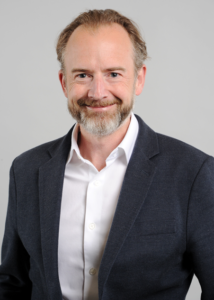 Mark Cusack leads the Teradata Product Management team responsible for the industry leading analytics platform – Vantage. Previously, Vice President Analytical Ecosystem at Teradata with product management responsibility for data integration products supporting the analytics platform. Prior to that, Chief Architect for IoT analytics at Teradata and Chief Architect and founding developer at RainStor. Once a PhD physicist and researcher in parallel simulation. Mark has a PhD Computational Physics; MSc Computing and BSc Physics.
Mark Cusack leads the Teradata Product Management team responsible for the industry leading analytics platform – Vantage. Previously, Vice President Analytical Ecosystem at Teradata with product management responsibility for data integration products supporting the analytics platform. Prior to that, Chief Architect for IoT analytics at Teradata and Chief Architect and founding developer at RainStor. Once a PhD physicist and researcher in parallel simulation. Mark has a PhD Computational Physics; MSc Computing and BSc Physics.
Talk Title: “Putting Machine Learning to Work to Deliver Business Outcomes”
Abstract: Advanced analytics are being adopted rapidly across industries. In the past, business leaders relied on historical analysis of data to understand trends to help drive business decisions – so called descriptive analytics. Today, leaders are looking towards new predictive and prescriptive analytics techniques, founded on Machine Learning, to inform and recommend actions in areas as diverse as supply chain management, industrial IoT and customer experience.
However, the challenge faced by businesses is how to turn what are often “science experiments” in ML into production-ready applications that can drive near-real-time decision making. Enterprises face difficulties on the road to operationalizing models: in acquiring the large quantity of data needed to drive model development and training; in preparing the data for training and scoring; in model management; and in making the output of the models actionable.
In this session, we’ll discuss the challenges faced in operationalizing advanced analytics, and consider how the largest enterprises are addressing these on the path to putting Machine Learning to work to deliver outcomes for their business.
Jacobus Geluk, Chief Technology Officer, agnos.ai
Talk Title: “Enterprise (or World Wide) Knowledge Graph and IoT”
Abstract: The IoT Community has made significant progress in developing competencies for data collection – but we haven’t quite figured out how to make all the data we collect useful at scale. This is partly because we have not implemented strong methods that provide us with a shared and trusted understanding of what the data means. The “data dilemma” for IoT is a solvable problem. It is in many ways comparable to the challenges that large data-intensive organizations have with their data landscape consisting of thousands of data sources. Applying the principles of Enterprise Knowledge Graph (EKG) can significantly enhance the value of your investment in IoT connectivity. The pathway forward is linked to mature data content standards that were developed specifically for this purpose. In this session, we will explore the principles of sustainability for IoT, to ensure that data is always properly identifiable and accessible, meaningful, secure, and has a well-defined provenance. This is based on some radically different ways of thinking about how to publish and consume data, connecting every data publisher (such as an IoT device) to any potential consumer, securely and at scale, via the data fabric of the EKG.
Davis Chen, VP of Engineering and Product Management, Kneron
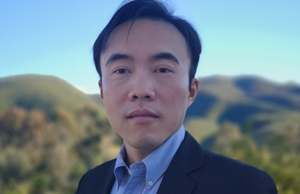 Davis Chen has joined Kneron as the company’s Vice President of Engineering and Product Management. He was previously Qualcomm Taipei Head of Engineering. In his 21-year tenure at Qualcomm, Davis Chen won eight Qualcomm Annual Achievement Awards and managed engineers to support six business units including mobile, IOT/XR, compute, connectivity, auto, and audio. At Kneron, he plans to lead the company’s engineering teams in innovating reconfigurable edge AI solutions aimed at accelerating the adoption of on-device AI in a diverse range of AIoT devices –– from smart doorbells and door locks to IP cameras and smart home devices. Kneron, is a leading provider of edge artificial intelligence (AI) solutions.
Davis Chen has joined Kneron as the company’s Vice President of Engineering and Product Management. He was previously Qualcomm Taipei Head of Engineering. In his 21-year tenure at Qualcomm, Davis Chen won eight Qualcomm Annual Achievement Awards and managed engineers to support six business units including mobile, IOT/XR, compute, connectivity, auto, and audio. At Kneron, he plans to lead the company’s engineering teams in innovating reconfigurable edge AI solutions aimed at accelerating the adoption of on-device AI in a diverse range of AIoT devices –– from smart doorbells and door locks to IP cameras and smart home devices. Kneron, is a leading provider of edge artificial intelligence (AI) solutions.
Talk Title: Edge AI delivering more effective and easily deployable solutions
Abstract: The convergence of IoT, Cloud Computing, Machine Learning, and 5G Mobile Technology have kickstarted a trend to accelerate artificial intelligence (AI) towards the edge. Deploying AI services and solutions at the edge can better address challenges such as the cost, latency, security, and privacy. With an ever increasing high performance yet power efficient NPU along with Cloud-Native software advancements, previously only imaginative AI services and solutions are being created and deployed in places and situations where previously not possible. We are witnessing a great technology transformation where AI is being incorporated in every technology stack.
Panelist:
Bryan Saunders, Head of Industry Consulting, IoT at SAS
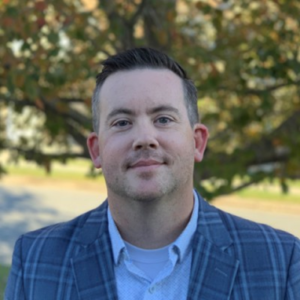 Bryan Saunders is a Sr. Manager, Industry Consulting & Enablement, for SAS Institute’s Global IoT Division. He provides thought leadership and expertise to drive advanced analytic solutions across industry in support of the Internet of Things. He helps customers uncover value and drive improved business outcomes from the growing volume of connected devices, with a specialized focus on improving service delivery, asset utilization, equipment reliability and overall product quality. In addition, Bryan works closely with product marketing and sales teams to ensure the SAS technology direction and solutions meet the needs of the market.
Bryan Saunders is a Sr. Manager, Industry Consulting & Enablement, for SAS Institute’s Global IoT Division. He provides thought leadership and expertise to drive advanced analytic solutions across industry in support of the Internet of Things. He helps customers uncover value and drive improved business outcomes from the growing volume of connected devices, with a specialized focus on improving service delivery, asset utilization, equipment reliability and overall product quality. In addition, Bryan works closely with product marketing and sales teams to ensure the SAS technology direction and solutions meet the needs of the market.
Prior to joining SAS, Bryan worked for the General Electric Company in a variety of roles supporting manufacturing and quality solutions. He brings deep domain experience in equipment condition monitoring and reliability, having served as the Data Management and Analytics Engineering Manager for the GE Power & Water business unit, supporting remote service delivery for the electric utility market.
Bryan has over 20 years of industry experience in the manufacturing and utilities industries. In addition, he is a certified Six Sigma Black Belt and holds a B.S. in Mechanical Engineering from Virginia Polytechnic Institute and State University.
S5: Computing – From Edge to Cloud
Moderator: Dejan Milojicic, Hewlett Packard Laboratories, HPE
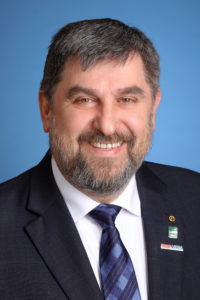 Dejan Milojicic is a distinguished technologist and director at Hewlett Packard Labs, Palo Alto, CA [1998-]. Previously, he worked in the OSF Research Institute, Cambridge, MA [1994-1998] and Institute “Mihajlo Pupin”, Belgrade, Serbia [1983-1991]. His areas of expertise include system software and distributed systems. He received his PhD from University of Kaiserslautern, Germany (1993); and MSc/BSc from Belgrade University, Serbia (1983/86). Dejan was a managing director of the Open Cirrus Cloud Computing testbed (2007-2011). Dejan has over 200 papers, 2 books and 55 granted patents. Dejan is an IEEE Fellow (2010), ACM Distinguished Engineer (2008), and HKN and USENIX member. He was president of IEEE Computer Society (2014) and IEEE Presidential candidate (2019). He has been on many conference program committees and journal editorial boards.
Dejan Milojicic is a distinguished technologist and director at Hewlett Packard Labs, Palo Alto, CA [1998-]. Previously, he worked in the OSF Research Institute, Cambridge, MA [1994-1998] and Institute “Mihajlo Pupin”, Belgrade, Serbia [1983-1991]. His areas of expertise include system software and distributed systems. He received his PhD from University of Kaiserslautern, Germany (1993); and MSc/BSc from Belgrade University, Serbia (1983/86). Dejan was a managing director of the Open Cirrus Cloud Computing testbed (2007-2011). Dejan has over 200 papers, 2 books and 55 granted patents. Dejan is an IEEE Fellow (2010), ACM Distinguished Engineer (2008), and HKN and USENIX member. He was president of IEEE Computer Society (2014) and IEEE Presidential candidate (2019). He has been on many conference program committees and journal editorial boards.
Ada Gavrilovska, Georgia Tech
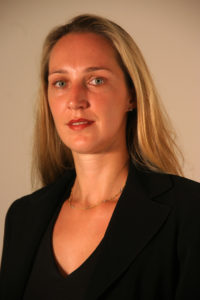 Ada Gavrilovska is an Associate Professor at the College of Computing and the Center for Experimental Research in Computer Systems (CERCS) at Georgia Tech. Her interests include conducting experimental systems research, focusing on operating systems, virtualization, and systems software for heterogeneous many-core platforms, emerging non-volatile memories, large scale datacenter and cloud systems, high-performance communication technologies and support for novel end-user devices and services. Her research is supported by the National Science Foundation, the US Department of Energy, and industry grants, including from Cisco, HP, IBM, Intel, Intercontinental Exchange, LexisNexis, VMware, and others. She has published numerous book chapters, journal and conference publications, and edited a book “High Performance Communications: A Vertical Approach” (CRC Press, 2009). In addition to research, she also teaches courses on operating systems and high performance communications. She has a BS degree in Computer Engineering from University Sts. Cyril and Methodius in Macedonia (’98), and a MS (’99) and PhD (’04) degrees in Computer Science from Georgia Tech.
Ada Gavrilovska is an Associate Professor at the College of Computing and the Center for Experimental Research in Computer Systems (CERCS) at Georgia Tech. Her interests include conducting experimental systems research, focusing on operating systems, virtualization, and systems software for heterogeneous many-core platforms, emerging non-volatile memories, large scale datacenter and cloud systems, high-performance communication technologies and support for novel end-user devices and services. Her research is supported by the National Science Foundation, the US Department of Energy, and industry grants, including from Cisco, HP, IBM, Intel, Intercontinental Exchange, LexisNexis, VMware, and others. She has published numerous book chapters, journal and conference publications, and edited a book “High Performance Communications: A Vertical Approach” (CRC Press, 2009). In addition to research, she also teaches courses on operating systems and high performance communications. She has a BS degree in Computer Engineering from University Sts. Cyril and Methodius in Macedonia (’98), and a MS (’99) and PhD (’04) degrees in Computer Science from Georgia Tech.
Tom Bradicich, Hewlett Packard Enterprise
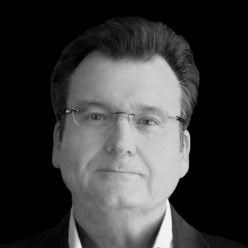 Tom Bradicich, Ph.D is a Hewlett Packard Fellow and VP and Hewlett Packard Enterprise. Beginning his career at IBM, Tom Bradicich was an IBM fellow, vice president, distinguished engineer, and data center business CTO. Prior to joining HP/Hewlett Packard Enterprise, Tom was an NI fellow at National Instruments, an operational technologies (OT) company.
Tom Bradicich, Ph.D is a Hewlett Packard Fellow and VP and Hewlett Packard Enterprise. Beginning his career at IBM, Tom Bradicich was an IBM fellow, vice president, distinguished engineer, and data center business CTO. Prior to joining HP/Hewlett Packard Enterprise, Tom was an NI fellow at National Instruments, an operational technologies (OT) company.Tom is currently a fellow, vice president, and global head of HPE’s Edge and IoT Labs and Center of Excellence. He and his team develop and commercialize advanced as-a-Service (SaaS and IaaS) software, focusing on cloud-managed remote infrastructure, Edge-as-a-Service, and converged IT/OT. Tom incepted and directs the HPE Channel-to-Edge Institute partner program and leads companywide strategies and venture and M&A assessments.
Most recently Tom was HPE VP and general manager, leading the global business unit for servers and edge systems and software, with P&L, worldwide sales, R&D, and customer experience ownership. In 2018, achieving revenue growth of more than $250 million, Tom’s business unit was the fastest growing at HPE. He directed the founding of HPE’s three global Innovation Labs for partner and customer collaborations and led HPE’s first corporate IoT strategy. His sales teams were noted for exceeding sales quotas and delivering first-of-a-kind products that greatly enhance customer business outcomes.
At HP, Tom was VP of server engineering, leading global R&D and launching more than 20 server, storage, software, and data center solutions, including the industry’s first 64-bit ARM server and first x86 server with integrated high-performance graphics.
Tom was named in CRN’s list of Top 100 Executives and Top 25 Disrupters in 2016, 2017, and 2019; was inducted into the North Carolina State University Alumni Hall of Fame; received the IBM Chairman’s Award; and was elected to the IBM Academy of Technology.
He currently serves on the board of directors of Aspen Technology, a publicly traded OT and AI software company; chairs the IoT community industry body (iotcommunity.net); and serves on the board of advisors and diversity committee at the University of Florida.
Throughout his career, Tom has led teams to develop, launch, and manage dozens of software and hardware products. His teams also created several new product categories, such as IBM’s first notebook computer, smartphones (IBM Simon™), converged systems (IBM BladeCenter™), converged edge systems and software (HPE Edgeline™), and OT and edge management software and platforms (HPE OTLink).
Tom’s products have won many industry recognitions, such as: InfoWorld Technology of the Year, Network World Product of the Year, CRN Product of the Year, CRN Coolest IoT Hardware, Frost & Sullivan Best Practice, ARM TechCon Best of Show, IoT World Congress Best IoT Solution, IT Brand Pulse Leader, Gartner Modular Server Magic Quadrant Leader, Mobile World Congress Top Edge Infrastructure, 451 Research Firestarter Award, and Automation World Edge Compute Leadership Award.
Tom led the team that incepted HPE’s first corporate IoT strategy and launched the GL™ and Edgeline™ hardware and software product lines as HPE’s first line of rugged systems expressly designed for the IoT and Intelligent Edge, as well as the OTLink product line, entering HPE for the first time in the OT and edge platform software businesses. He also serves as an adviser to the company’s corporate legal teams on acquisitions, IP, and business contracts.
Adam Drobot, OpenTechWorks, Inc.
 Adam Drobot is an experienced technologist and manager. His activities are strategic consulting, start-ups, and industry associations. He is the Chairman of the Board of OpenTechWorks, Inc and serves on the boards of multiple companies and no-profit organizations. In the past he was the Managing Director and CTO of 2M Companies, the President of Applied Technology Solutions and the CTO of Telcordia Technologies (Bellcore). Previous to that, he managed the Advanced Technology Group at Science Applications International (SAIC/Leidos) and was the Senior Vice President for Science and Technology at SAIC.
Adam Drobot is an experienced technologist and manager. His activities are strategic consulting, start-ups, and industry associations. He is the Chairman of the Board of OpenTechWorks, Inc and serves on the boards of multiple companies and no-profit organizations. In the past he was the Managing Director and CTO of 2M Companies, the President of Applied Technology Solutions and the CTO of Telcordia Technologies (Bellcore). Previous to that, he managed the Advanced Technology Group at Science Applications International (SAIC/Leidos) and was the Senior Vice President for Science and Technology at SAIC.
Adam is a member of the FCC Technological Advisory Council. In the past he was on the Board of the Telecommunications Industry Association where he Chaired the Technology Committee; the US Department of Transportation Intelligent Transportation Systems Program Advisory Committee; and the University of Michigan Transportation Research Institute External Advisory Board. In 2017 and 2018 he chaired the IEEE Internet of Things Initiative Activities Board. He has published over 100 journal articles and holds 27 patents. In his professional career he was responsible for the development of several major multidisciplinary scientific modeling codes and specialized in developing tools and techniques for the design, management, and operation of complex scientific facilities, discrete manufacturing systems, and large-scale platforms, for government and industry. His degrees include a BA in Engineering Physics from Cornell University and a PhD. in Plasma Physics from the University of Texas at Austin.
Bryan Saunders, Head of Industry Consulting, IoT at SAS
 Bryan Saunders is a Sr. Manager, Industry Consulting & Enablement, for SAS Institute’s Global IoT Division. He provides thought leadership and expertise to drive advanced analytic solutions across industry in support of the Internet of Things. He helps customers uncover value and drive improved business outcomes from the growing volume of connected devices, with a specialized focus on improving service delivery, asset utilization, equipment reliability and overall product quality. In addition, Bryan works closely with product marketing and sales teams to ensure the SAS technology direction and solutions meet the needs of the market.
Bryan Saunders is a Sr. Manager, Industry Consulting & Enablement, for SAS Institute’s Global IoT Division. He provides thought leadership and expertise to drive advanced analytic solutions across industry in support of the Internet of Things. He helps customers uncover value and drive improved business outcomes from the growing volume of connected devices, with a specialized focus on improving service delivery, asset utilization, equipment reliability and overall product quality. In addition, Bryan works closely with product marketing and sales teams to ensure the SAS technology direction and solutions meet the needs of the market.
Prior to joining SAS, Bryan worked for the General Electric Company in a variety of roles supporting manufacturing and quality solutions. He brings deep domain experience in equipment condition monitoring and reliability, having served as the Data Management and Analytics Engineering Manager for the GE Power & Water business unit, supporting remote service delivery for the electric utility market.
Bryan has over 20 years of industry experience in the manufacturing and utilities industries. In addition, he is a certified Six Sigma Black Belt and holds a B.S. in Mechanical Engineering from Virginia Polytechnic Institute and State University



